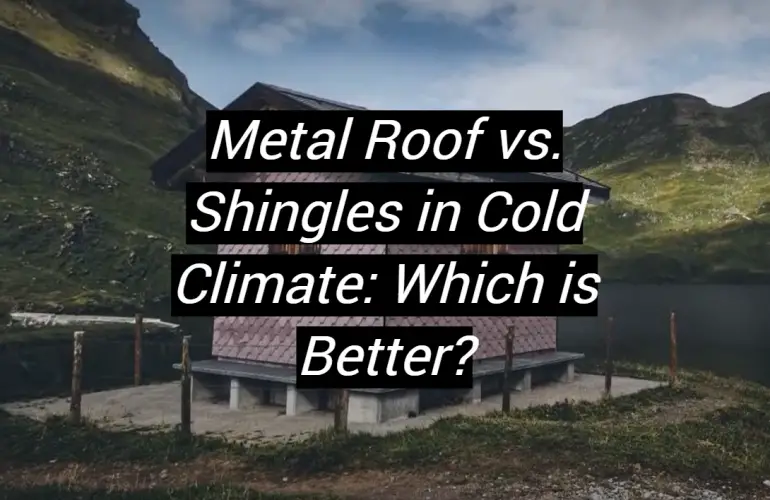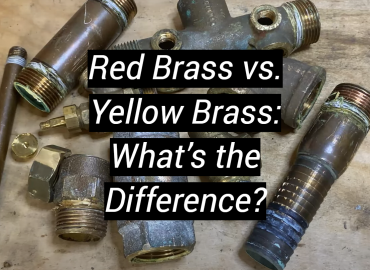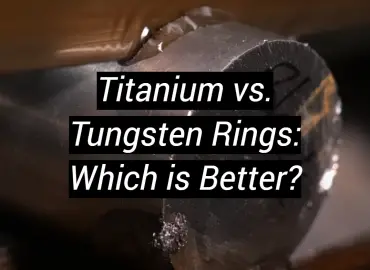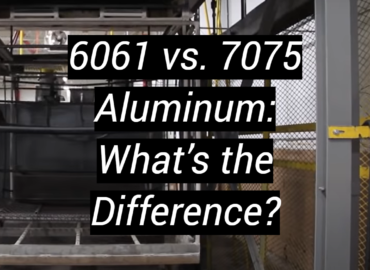When you are building a home in a cold climate, one of the biggest decisions you have to make is what type of roofing to put on your house. There are many factors to consider, but one of the most important is whether to choose metal roofing or shingles. Both have their pros and cons, so making the right decision can be tricky. In this article, we will explore the differences between metal roofs and shingle roofs in cold climates, and help you decide which is better for your home.
Metal Roofing
Metal roofing is a popular choice for homes in cold climates, as it is incredibly durable and can withstand heavy snow and ice.
One of the downsides of metal roofing is that it can be more expensive than shingles, although the initial investment may be offset by the fact that metal roofs last much longer. Another downside of metal roofs is that they can be noisy during a rain or hail storm.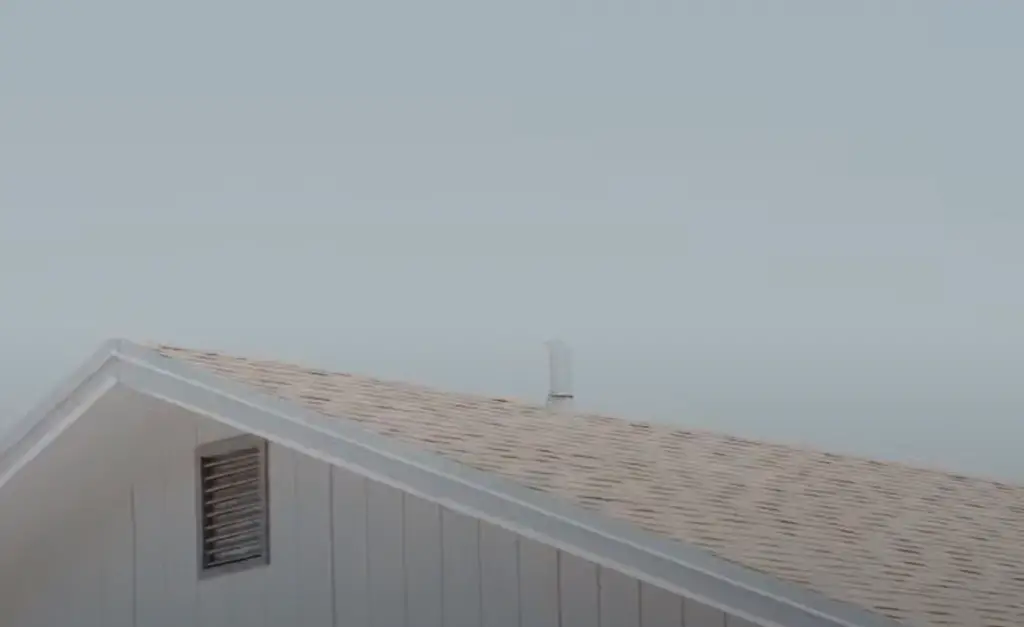
However, this can be alleviated by installing sound-proofing insulation under the metal roof.
Slate Roofing
Slate roofs have a long history of protecting homes and buildings from the elements, dating back to the Roman Empire. Today, slate roofs are still prized for their beauty, durability, and energy efficiency. But what about in cold climates? Is slate a good choice for a roofing material in areas that experience freezing temperatures and heavy snowfall?
The short answer is yes, slate is an excellent choice for a roof in a cold climate. Here’s why:
- Slate is extremely durable and can withstand heavy snowfall and high winds without damage.
- Slate is fireproof, making it a good choice for areas prone to wildfires.
- Slate reflects heat, keeping your home cooler in summer and warmer in winter. This can help you save on energy costs.
- Slate roofs are low maintenance and can last for generations with proper care.
- Slate roofs add curb appeal and increase the value of your home.[2]
Synthetic Slate Shingles
If you’re looking for an environmentally friendly roofing option, synthetic slate shingles may be the right choice for you. Slate is a naturally occurring material, so synthetic slate shingles are made to look like real slate without the environmental impact.
Synthetic slate shingles are also very durable, so they can last for many years with proper care and maintenance. They’re also fire resistant, which is an important consideration if you live in an area prone to wildfires.
One downside of synthetic slate shingles is that they’re more expensive than other roofing options. However, they may be worth the investment if you want a roof that will last for many years and protect your home from the elements.[2]
Asphalt Shingles
Asphalt shingles are the most popular type of roofing in North America, accounting for about 80% of all residential roofs. They’re also common in cold climates, where they’re prized for their affordability and easy installation.
There are two types of asphalt shingles: fiberglass and organic. Fiberglass shingles are made with a glass fiber mat, while organic shingles are made with an organic mat (usually felt). Fiberglass shingles are more durable and fire-resistant than organic shingles, but they’re also more expensive.
Asphalt shingles are available in a wide range of colors and styles, which makes them a popular choice for homeowners who want to customize the look of their roof. They’re also relatively easy to install, which makes them a good choice for do-it-yourselfers.
However, asphalt shingles have a few drawbacks. They’re not as durable as some other types of roofing, so they may need to be replaced more frequently. They’re also not as fire-resistant as some other types of roofing (such as metal), so they may not be the best choice for homes in fire-prone areas.[2]
Installation
Most metal roofs are installed by professional roofing contractors, and the installation process is generally similar to that of installing a shingle roof. However, there are some important differences to keep in mind. One is that metal roofs are much lighter than shingle roofs, so they require special fasteners and brackets to secure them to your home.Another difference is that most metal roofs come in pre-painted panels, which means that your roofer will need to cut and fit the panels to your roofline. This can add to the cost and time of installation.
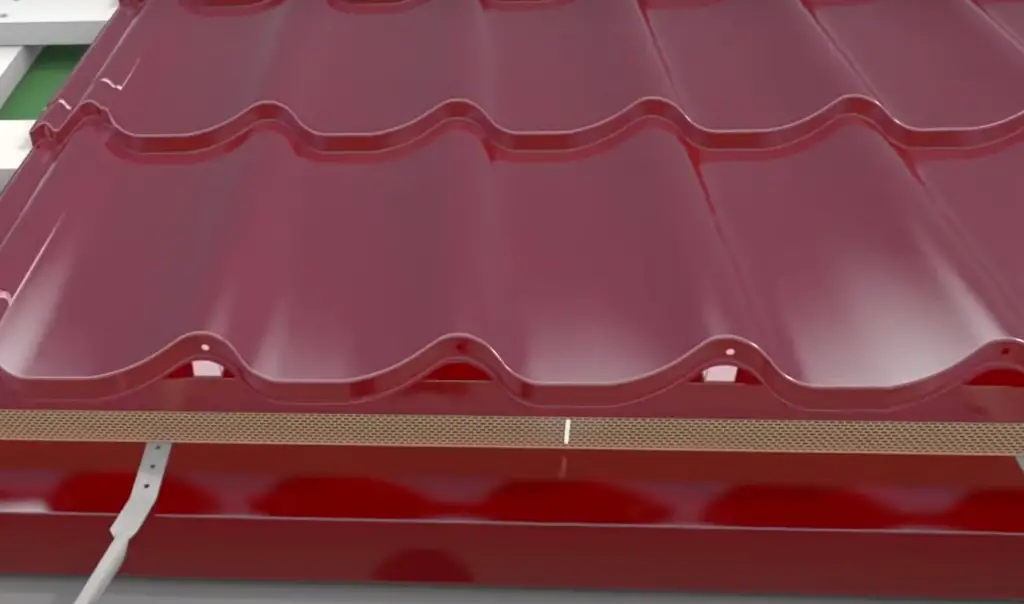
If you live in an area with severe weather conditions, it’s important to choose a metal roof that’s been tested and rated for high winds and heavy snow loads. Otherwise, your roof could be damaged or even torn off in a severe storm.
How Metal Roof Systems Perform In The Winter
Reduces Heating Costs
Metal roofs can help to reduce your energy costs in the winter. They reflect more sunlight than asphalt shingles, which means your home will stay cooler in the summer and warmer in the winter.
Less Susceptible to Snow and Ice Damage
Metal roofs are less susceptible to snow and ice damage than shingles. The weight of the snow and ice can cause shingles to crack and break, but metal roofs are built to withstand the heavy weight.[1]
Less Likely to Leak
Metal roofs are less likely to leak than shingles. The seams on a metal roof are sealed tight, so there is no chance for water to seep in. This means your home will be better protected from the elements.
Year Round Installation
Metal roofs can be installed year-round, so you don’t have to worry about the weather. This is a huge benefit if you live in an area with severe weather conditions.
Are Shingle Roofs Good for the Cold Climate?
Reduced Energy Consumption
One of the most important benefits of a metal roof is that it can help to reduce your energy consumption. Metal roofs reflect heat better than traditional shingles, which means that your home will stay cooler in the summer and warmer in the winter. This can lead to reduced energy bills and a smaller carbon footprint.
Longevity
Another important factor to consider is the longevity of the roof. Metal roofs can last for 50 years or more, while shingle roofs typically only last 20-30 years. This means that you won’t have to replace your roof as often, which can save you money in the long run.
Increased Lifespan
In addition to reducing your energy consumption, a metal roof can also help to increase the lifespan of your air conditioning units. The reflective surface of the metal helps to keep your home cooler, which means that your AC units won’t have to work as hard and will last longer.
Impact Resistant
Another advantage of metal roofs is that they are impact resistant. This means that they can stand up to high winds, hail, and other severe weather conditions. This is especially important in areas that are prone to hurricanes or tornadoes.[1]
Inexpensive
One of the most surprising benefits of metal roofs is that they are actually very inexpensive.
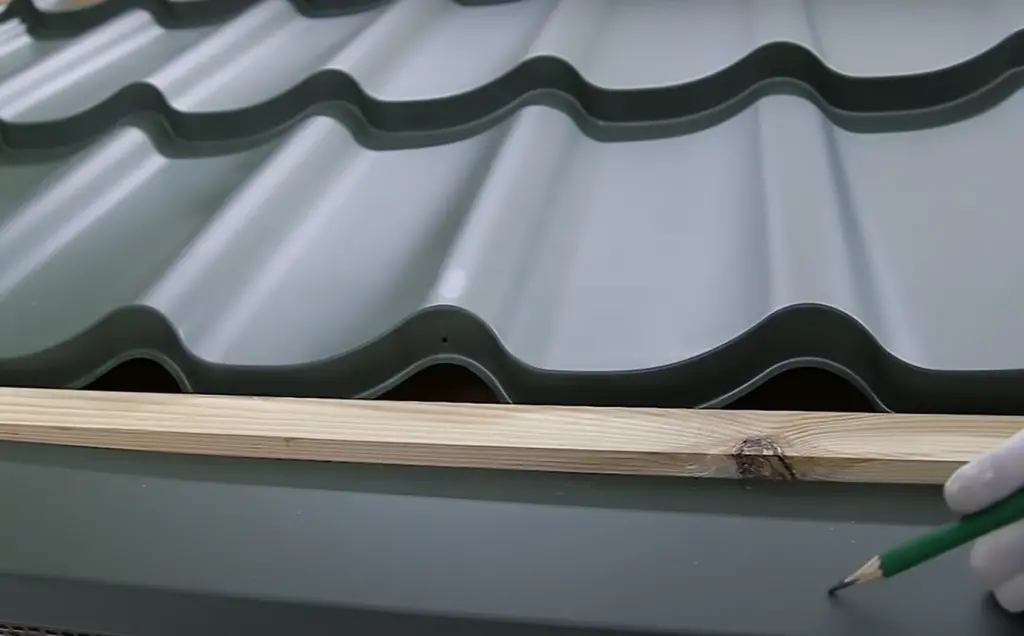
When you compare the cost of a metal roof to the cost of a shingle roof, you will find that the metal roof is actually cheaper. This is because metal roofs last longer and require less maintenance than shingle roofs.
Variety
Metal roofs come in a variety of styles and colors. This means that you can find a metal roof that will complement the style of your home. You can also choose a color that will help to keep your home cooler in the summer.[4]
Visual appeal
A metal roof can actually increase the curb appeal of your home. This is because metal roofs come in a variety of colors and styles. You can find a metal roof that will match the style of your home. You can also choose a color that will help to accentuate the features of your home.
Durability
Metal roofs are also very durable. This means that they can withstand the elements and last for many years. Metal roofs are a great choice for homes in areas that experience extreme weather conditions.[5]
Energy efficiency
Metal roofs are also very energy efficient. This is because they reflect heat and keep your home cooler in the summer and warmer in the winter. This can lead to reduced energy bills and a smaller carbon footprint.[3]
Environmental friendly
Metal roofs are also very environmentally friendly. This is because they are made from recycled materials and they last for a very long time. Metal roofs are a great choice for homeowners who want to reduce their impact on the environment.
As you can see, there are many benefits to metal roofs.
If you are looking for a roof that will last for many years, a metal roof is a great choice.Shingle or A Metal Roof For Your Huntsville AL Home
When it comes to your home, you want what is best for it. You want a material that will last and keep your family safe and comfortable. But with so many choices on the market, how do you know which one to choose? If you live in Huntsville, Alabama, then you know that the climate can be harsh in the winter. So, what is the best roofing material to withstand the cold temperatures?
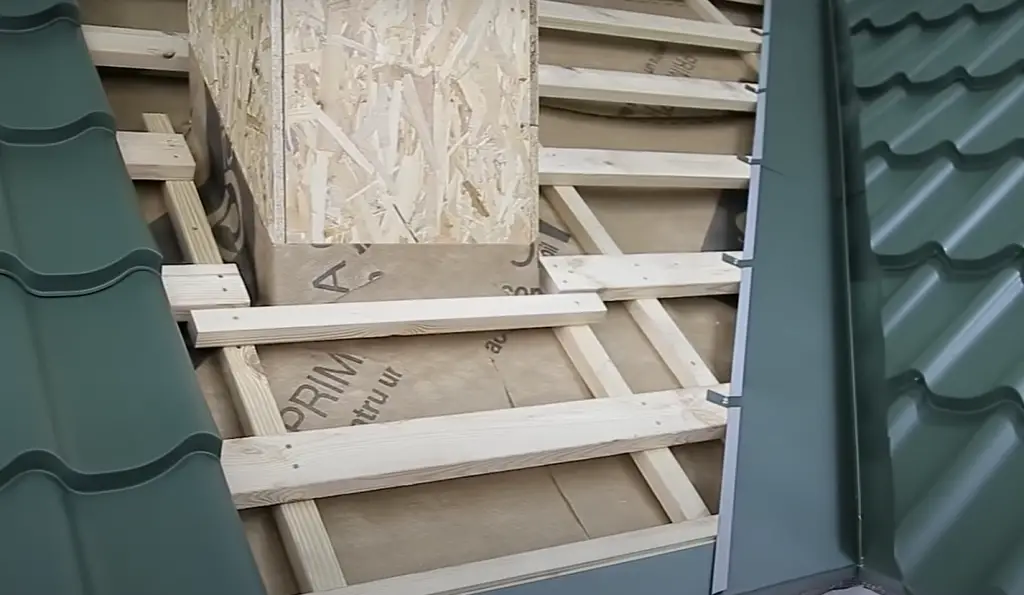
Metal roofs are becoming more popular in Huntsville because they are durable and long-lasting. They are also energy-efficient and can reflect heat away from your home, keeping it cooler in the summer. Metal roofs can also withstand high winds and are resistant to fire.
Shingle roofs are also a popular choice for Huntsville homes. They are less expensive than metal roofs and can last up to 30 years with proper maintenance. Shingle roofs are also easy to install and repair.[1]
Disadvantages of metal
Although metal roofing has many advantages, there are a few potential disadvantages to be aware of as well. One potential disadvantage of metal roofing is that it can be noisy during a rain or hailstorm. If you are considering metal roofing for your home, make sure to have an insulation barrier installed between the metal and the roof decking to help reduce noise.
Another potential disadvantage of metal roofing is its cost. Metal roofing is typically more expensive than traditional asphalt shingles, although the price difference has been decreasing in recent years. However, the initial investment may be worth it since metal roofs often last longer than asphalt shingles and require less maintenance over time.
Finally, some homeowners worry that metal roofing will be too hot during the summer months. However, newer metal roofs are often coated with a reflective material that helps keep heat out of the home. If you live in an area with extreme summer heat, make sure to ask your roofing contractor about cool roof technology when considering metal roofing for your home.[4]
Disadvantages of shingles
- Shingles are more prone to cracking and breaking in cold weather.
- They also can become brittle and less flexible, which can lead to leaks.
- Snow and ice can also cause shingles to come loose, creating potential gaps that allow heat to escape from your home.
- Shingles are also more susceptible to wind damage in cold climates.
- And finally, because shingles are made of asphalt, they will eventually degrade and need to be replaced – something that typically needs to be done every 20-30 years.[4]
Metal Roof Vs Shingles In Cold Climate: Which One Is Best?
If you are planning to roof your house and live in a cold climate, you may be wondering which type of roofing material is best suited for your needs. There are two main types of roofing materials that are commonly used in cold climates: metal roofs and shingles. Both have their own set of pros and cons, so it is important to weigh all of your options before making a final decision.
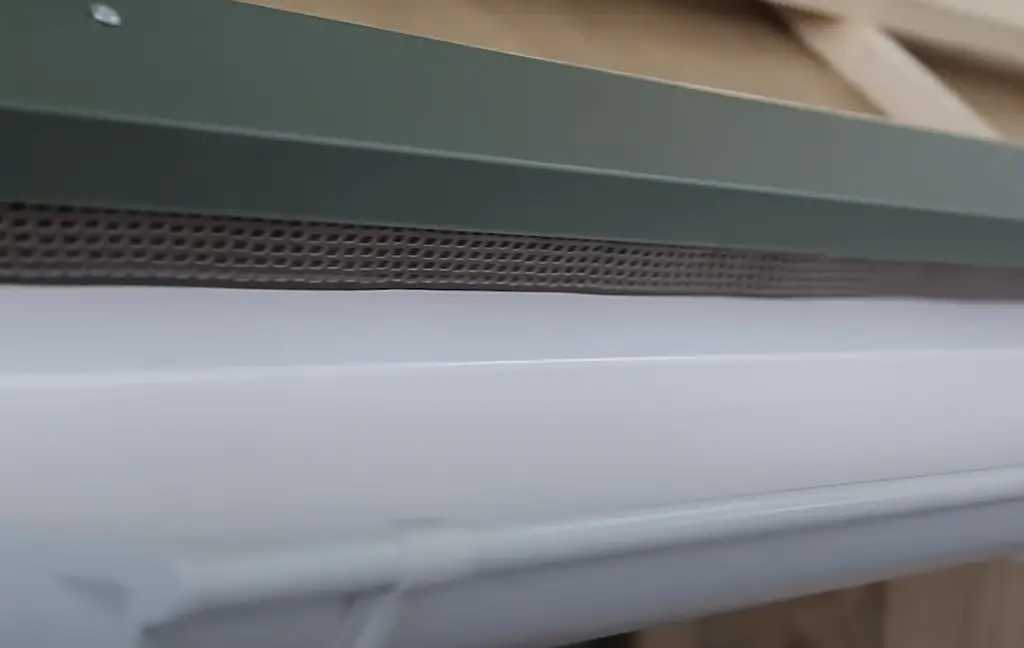
Metal roofs are a great option for those who live in cold climates because they are very durable and can withstand heavy snow and ice accumulation. Metal roofs also have a high fire resistance rating, which is an important consideration if you live in an area where wildfires are common. However, metal roofs can be quite expensive, so they may not be the best option for everyone.
Shingles are another popular roofing material that is commonly used in cold climates. Shingles are less expensive than metal roofs and they offer good protection against the elements. However, shingles do not have the same level of fire resistance as metal roofs, so they may not be the best choice for homes in areas prone to wildfires.[2]
FAQ
What roof shape is best for snow?
The best roof shape for snow is a slope or pitch. A steeper roof allows snow to slide off more easily, which can help prevent damaging buildup.
Which is better: shingles or metal?
There is no definitive answer, as both have their pros and cons. Shingles are generally more affordable and easier to install, while metal roofs are more durable and can last longer. Ultimately, the best choice depends on your specific needs and preferences.
What is the best roof to prevent heat?
The best roof to prevent heat loss is a metal roof. Metal reflects heat better than shingles, which can help keep your home cooler in summer months.
Do metal roofs keep houses cooler?
Yes, metal roofs can help keep houses cooler. Metal reflects heat better than shingles, so it can help reduce your energy costs in summer months.
What type of roof is most energy-efficient?
The most energy-efficient roof is a metal roof. Metal reflects heat better than shingles, so it can help keep your home cooler in summer months.
Which is more energy-efficient shingles or metal roof?
There is no definitive answer, as both have their pros and cons. Shingles are generally more affordable and easier to install, while metal roofs are more durable and can last longer. Ultimately, the best choice depends on your specific needs and preferences.
What color metal roof is most efficient?
The most energy-efficient color metal roof is a white metal roof. White reflects heat better than darker colors, so it can help keep your home cooler in summer months.
What type of roof is most wind resistant?
The most wind-resistant roof is a metal roof. Metal roofs are designed to withstand high winds, so they can help protect your home in severe weather conditions.
Useful Video:Metal Roof Vs Shingles in Cold Climate | Considerations Before Installing a Roof in a Cold Climate
Conclusion
So, what’s the verdict? Is a metal roof or shingles better in a cold climate?
The truth is, it depends on your specific situation. If you’re looking for a roof that will last longer and require less maintenance, metal is the way to go. However, if you’re on a tight budget, shingles may be the better option.
Either way, it’s important to consult with a roofing professional to get their opinion on which type of roof would be best for your home. They will be able to take into account your budget, the climate you live in, and the overall style of your home to make a recommendation that’s tailored just for you.
Do you have any experience with metal roofs or shingles in cold climates? We’d love to hear about it in the comments below!
References:
- https://www.2nd2noneroofing.com/metal-roof-shingles-in-winter/
- https://www.angi.com/articles/pros-and-cons-metal-roofs-cold-climates.htm
- https://www.homeandroofing.com/blog/metal-roof-vs-shingles-in-cold-climate
- https://www.roofingexpertsstpaul.com/metal-roof-vs-shingles-in-cold-climate/
- https://www.mountaintopmetalroofing.com/blog/metal-roof-vs-shingles-in-cold-climates/

